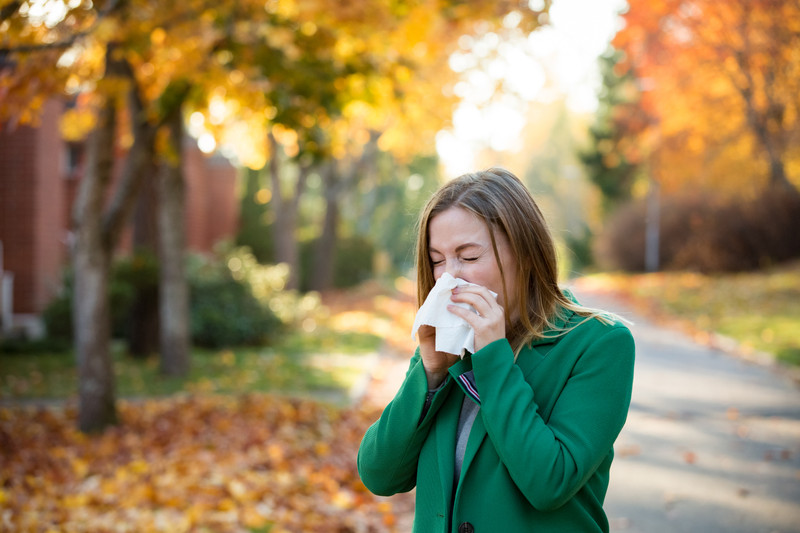Around the onset of fall, a large swathe of the adult population typically experiences some type of seasonal allergic reaction, usually connected to plant-based matter that is airborne. What exactly are the causes of fall allergies? And, what (if any) over-the-counter supplements can help fight them off? Here we discuss the answers to those two questions.
What Causes Fall Seasonal Allergies?
Seasonal allergens emerge in both spring and fall, and they have some basic things in common. Both sets of allergens that emerge in those two seasons are the result of plant materials that are released into the air, typically seeds or spores. These come from a variety of particular plants and trees as well as fungi.
In the fall, the predominant culprits for seasonal allergies (allergic rhinitis) are various types of weeds. The most common weed that triggers an allergic response is ragweed. Other common ones include cocklebur, mugwort, and tumbleweed. Ragweed begins to flourish in late August, and can stick around through the entire fall season.
The uncomfortable and even troublesome symptoms of fall allergies are typically the result of the release of histamines. The immune system releases histamines in order to fight off perceived pathogens which have entered the body (although ragweed and other seasonal triggers are not often, in fact, pathogenic). A primary fall allergy symptom is chest congestion due to mucus production. This can be accompanied by coughing, sneezing, itching, a runny nose, and watery eyes!
Supplements for Autumn Allergies
A few particular supplements have been recognized for their potential to treat fall allergy symptoms. Here are those most likely to be of help in alleviating symptoms:
Bromelain is a natural supplement that can be helpful in reducing nasal swelling and thinning mucus. This can make it easier to breathe during a period of seasonal allergy symptoms.
Vitamin C is a powerful vitamin that should be taken in supplement form in order to mitigate the symptoms of allergies. This benefit is due to its antihistamine effects. Studies show vitamin C can reduce most of the major symptoms of allergic rhinitis, including chest congestion, watery eyes, sneezing, and a runny nose.
Stinging nettle is a supplement derived from a plant named Urtica dioica. The extract of stringing nettle leaves is one of most used plant-derived products for fall allergies. The leaves of the stinging nettle plant are the valuable part, which can potentially reduce fall allergy symptoms. Be sure to find a stinging nettle supplement made from the leaves of the plant, and not the root.
Probiotics: These positive bacteria, available in supplement form, have multiple benefits. Studies show that ingesting probiotic bacteria is clinically beneficial in overcoming allergic rhinitis in children. Taking probiotics can relieve allergy symptoms, and support the immune system.
Quercetin is a bioflavonoid derived from plants such as grapefruit and black tea, and it has antihistamine properties that combat an allergic rhinitis reaction. This is due to its combined anti-inflammatory and antioxidant properties. Research suggests it blocks histamine and other particular substances that cause these symptoms to occur.
The start of fall allergy season is upon us. Keep these remedies handy if you know you are likely to experience them. Of course, it is recommended that you talk to your healthcare provider before taking any supplement product for the first time.

